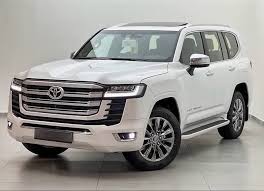Buying a car is an exciting and important decision, but it’s not one to be made lightly. Whether you’re in the market for a new or used car, making an informed choice can save you time, money, and frustration. Below, we explore the key factors to keep in mind when purchasing your next vehicle.
1. Set Your Budget
Before stepping into a dealership, define a realistic budget. Consider not just the car’s purchase price but also the ongoing costs like:
- Fuel consumption
- Insurance premiums
- Maintenance and repair expenses
- Registration fees and taxes
If you’re considering financing, ensure your monthly payments fit comfortably within your income.
2. Understand Your Needs
Think about how you plan to use your car. Are you commuting daily, driving long distances, or transporting a family? Your specific needs will determine the type of car to prioritize. For instance:
- Compact cars are great for city driving and fuel efficiency.
- SUVs or minivans work well for families or those needing extra space.
- Electric or hybrid cars suit eco-conscious buyers.
3. Research Makes and Models
Spend time researching different car brands and models. Look into reliability ratings, resale values, and customer reviews. Some key questions to consider:
- How reliable is the model?
- Does it have the features you need (e.g., navigation, safety systems)?
- What’s the warranty coverage?
Websites like Kelley Blue Book or local automotive forums can provide valuable insights.
4. Fuel Efficiency and Powertrain
Fuel economy is a crucial factor, especially as fuel prices fluctuate. Evaluate whether a gasoline, diesel, hybrid, or electric vehicle (EV) best suits your driving habits:
- Gasoline: Widely available, versatile, and ideal for short to medium commutes.
- Diesel: Excellent for long-distance and heavy-duty needs but less common.
- Hybrid: Combines fuel and electric power, offering great efficiency.
- Electric: Perfect for environmentally conscious buyers but requires charging infrastructure.
5. Check Safety Features
Safety should be a top priority. Modern vehicles are equipped with advanced features that can protect you and your passengers. Look for:
- Anti-lock braking systems (ABS)
- Airbags
- Stability control
- Advanced Driver Assistance Systems (ADAS), such as blind-spot monitoring or lane-keeping assist
Vehicles with high safety ratings from organizations like Euro NCAP or IIHS are always a smart choice.
6. Consider Total Cost of Ownership
The initial cost of a car is just one piece of the puzzle. Calculate the total cost of ownership (TCO), which includes:
- Depreciation: How much value the car will lose over time
- Maintenance: How often it needs servicing and parts replacement
- Insurance: Costs vary based on the model and safety features
- Fuel: Based on the car’s mileage and your driving habits
7. Test Drive the Vehicle
Never skip the test drive! This is your chance to experience the car’s performance and comfort. During the drive, pay attention to:
- Acceleration and braking
- Steering and handling
- Seat comfort and interior noise
- Visibility and ease of parking
A test drive can often highlight issues or features you wouldn’t notice otherwise.
8. Evaluate New vs. Used Cars
Decide whether a new or used car suits your needs:
- New Cars: Offer the latest technology, full warranties, and zero mileage but come at a higher price.
- Used Cars: More affordable but require a thorough inspection and may have higher maintenance costs.
Certified Pre-Owned (CPO) cars offer a balance, as they are inspected and come with limited warranties.
9. Negotiate and Look for Deals
Dealerships often have seasonal sales, trade-in offers, or financing incentives. Don’t be afraid to negotiate for the best price or ask about additional perks like free servicing or accessories.
10. Inspect the Fine Print
Finally, read all terms and conditions carefully before signing the contract. Ensure you understand:
- Warranty coverage
- Financing terms
- Return or exchange policies
If something seems unclear, ask for clarification to avoid surprises later.
Conclusion
Buying a car is both an exciting and complex process, but with proper planning and research, you can find the perfect vehicle to meet your needs and budget. By focusing on your priorities and keeping these tips in mind, you’ll make a decision that you’ll feel confident about for years to come.
What’s the most important factor for you when choosing a car? Share your thoughts and experiences in the comments below!
